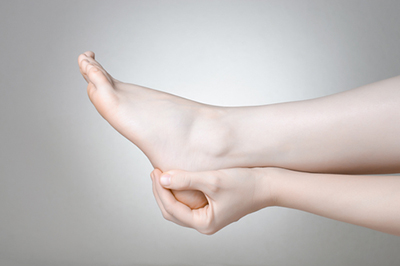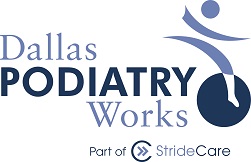Getting a Leash on Heel Pain
Talk about heel pain? Podiatrists and orthopedic surgeons get their ear full since heel pain is one of the most common complaints voiced. Heel pain is a general term employed to describe certain specific ailments that affect the heel. Usually ailments such as plantar fasciitis, and heel spurs, but may also include Achilles tendonitis and ruptures.

Plantar fasciitis occurs when the plantar fascia is stretched beyond its normal limits. It develops small tears, causing pain and tenderness. Heel spurs are growths due to abnormal strain of the fascia. If left untreated, this condition can become debilitating and have a major impact on your lifestyle. These typically do not get better on their own, so you should seek prompt medical attention from your podiatrist in order to prevent them from worsening. All is not lost as most cases of heel pain can be treated with conservative methods and a little homegrown persistence.
Heel pain, originating in the plantar fascia does not usually come about due to a sudden injury, but rather develops over a period of time. Factors that contribute to the onset include:
- Occupation – Jobs that require you to be on your feet a lot or do significant heavy lifting will add to the stress on certain muscles and ligaments.
- Activities – Athletes are frequent sufferers of heel pain due to repetitive high impact forces that slowly wear away at body tissues. Runners are particularly susceptible.
- Obesity – Extra weight is a constant stress on the body, especially the feet and supporting muscles, tendons and ligaments.
The other area of concern is the Achilles tendon. Any injury to the Achilles tendon should be taken seriously and treated by the podiatrists at Dallas Podiatry Works, Drs. Joel Brook, Arroyo, and McClurkin. Long-term recovery is more likely to be complete if you seek early treatment. Our doctors will most likely be able to diagnose an Achilles tendon rupture or partial rupture, but may want imaging tests to confirm their findings and understand the scope of your injury. Most often experienced by athletes as a sudden injury, an Achilles rupture is described as feeling like you’ve been hit in the heel with a bat. It is accompanied by difficulty walking.
Drs. Joel Brook, Arroyo, and McClurkin will determine if surgery is necessary. Most often this can be treated conservatively. Now, Dallas Podiatry Works effectively treats these injuries with shockwave therapy using the EPAT machine. This simple office based procedure is done without anesthesia and accelerates the bodies own potential healing abilities. For more serious conditions, immobilization in a boot, splint or cast may be needed. Crutches or a knee walker may be necessary for an additional period, followed by physical therapy to help you regain strength and mobility.
Don’t suffer needlessly. Dallas Podiatry Works has treatment options ranging from simple orthotics to surgery that will help you manage or resolve your heel pain. Call the Dallas office at 972.853.7100 or Plano at (972) 943-3323 to set up an appointment.





